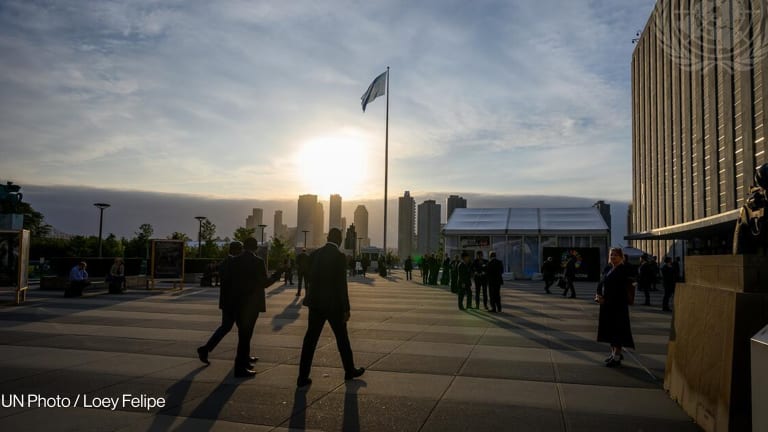
Developing countries - some more than others - have made progress in their pursuit of the Millennium Development Goals, a new report card on the goals shows. Progress, however, is uneven and, in some cases, does not always benefit those who are most in need.
The report, dubbed “MDG Report Card,” is a project of the U.K.-based think tank Overseas Development Institute and was funded by the Bill & Melinda Gates Foundation.
Ahead of the high-level U.N. summit on the MDGs next week, the report provides a statistics-based glimpse of where individual countries stand in terms of achieving seven of the eight MDGs. The eighth goal, on promoting global partnership, is not included in ODI’s analysis.
The report gauges the relative and absolute progress of developing countries in meeting the seven goals on hunger and poverty, education, maternal health, child health, fighting diseases, women’s empowerment and environment sustainability.
“Relative progress measures a country’s progress relative to initial conditions. This highlights the degree to which they have closed the gap on MDG targets. Absolute progress measures change regardless of initial conditions,” ODI explains.
The report offers a relatively positive review: “The key message from the years of working towards the MDGs is that progress is possible. In every aspect of development – even on the MDGs where the least success has been seen, on hunger and maternal and child health – a significant number of countries have made real achievements.”
African countries, according to ODI’s analysis, rank highest in posting absolute progress, with Benin, Mali, Ethiopia and Gambia leading the list of 20 countries that posted the highest absolute progress. Middle-income countries such as Ecuador and China, tend to do better with regards to relative progress.
Unequal progress within countries
Progress within countries, however, is uneven and in several cases, does not benefit the poor, the ODI analysis shows.
The report notes disparities between rich and poor, rural and urban populations and gender groups. In some areas and countries, the plight of the poorest actually deteriorated while overall progress was being made, a news release from ODI says.
Gender disparities in the education and health sectors were also noted in several countries, ODI notes.
Uneven progress across MDGs
The ODI report also finds uneven progress across the seven MDGs analyzed. Progess, it says, was most substantial in the goals on access to education, poverty reduction, gender disparities and providing access to quality water resources.
Meanwhile, it says that “access to maternal health services, for example, varies between 98 percent in Mauritius and 6 percent in Ethiopia. HIV infection rates also show significant discrepancies across Africa.”
Devex News – live breaking news coverage of the Millennium Development Goals and the Sept. 20-22 U.N. MDG summit in New York.








